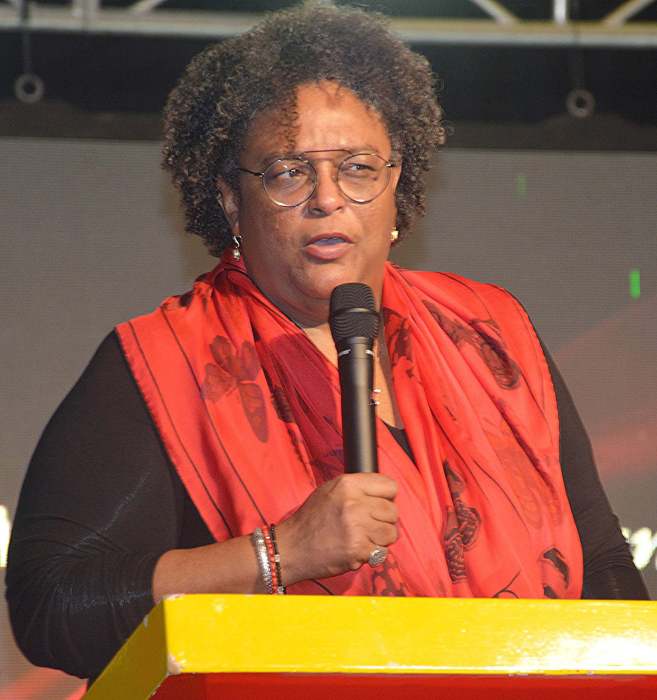As Guyana prepares to become a producing nation early in 2020, authorities are not only scrambling to switch the nation’s economy to cater for oil and gas, but also to find ways of preventing neighboring Venezuela from grabbing up large tracts of the country’s resource-rich land and sea space.
An idea being seriously and actively considered in the halls of power is to award the few deep sea oil blocks still available to countries or companies which are so rich and powerful that Venezuela won’t dare to threaten their investment.
Venezuela has for decades claimed ownership to Guyana’s western Essequibo Region where all its foreign direct investment projects are located as well as huge parts of its marine space where several oil companies are exploring for hydrocarbons in concessions awarded by Guyana. The United Nations recently sent the case to the World Court in The Netherlands for a once and for all settlement.
In the past week, cabinet ministers and other high officials have all but made it clear that Brazil’s Petrobras, the semi-public Brazilian oil major, might be the favored candidate to be inserted in to the basin to counter Venezuela’s decades-old claim to Guyana’s land and marine space.
Opposition parties and civil society have, instead, been pressuring authorities to auction off the remaining blocks to the highest bidders but there is a growing school of thought here that it might be wiser and more strategic to have Brazilian state interest in the basin rather than a western multinational who would quit at the first sign of trouble.
The world’s largest oil and gas companies have been flocking to Guyana in the wake of the humungous out find by US giant ExxonMobil in the past three years. Exxon along with partners Hess Oil and Nexen of China have so far drilled seven successful wells with an estimated 3.2 billion barrels of oil so far.
Production in 2020 could start with a minimum of about 500,000 barrels per day, but this number is expected to rise when drilling in the Liza Phase Two area begins in about two years. At least 40 wells are on the cards in addition to the 17 in phase one officials say.
This is even as a second consortium involving Tullow Oil of the UK and Eco Oil and Gas of Canada say they are certain that their own separate concession contains at least one billion barrels based on its latest seismic studies.
“As for the manner of disposal (of the blocks), we will be seeking direct engagements with some state-owned companies such as Petrobras and may favor a select bidding process in order to attract other international majors,” Resources Minister Trotman said Tuesday.
Guyana and Brazil have for decades shared very close diplomatic and other ties.
A Brazilian high level team consisting of five senior ministers and about 20 admirals and generals visited Guyana last month, making it clear that Brasilia would not tolerate any form of Venezuelan aggression whatsoever against tiny Guyana. The delegation also suggested that South American borders are fixed and that peace must be the order on the continent.
Critics say that with such signals coming from both sides, it appears to be a foregone conclusion that Petrobras will be head-hunted to take up a concession alongside Exxon and other oil majors.
Back in mid 2015 when the consortium had announced the oil find, Venezuela immediately redrew its marine maps to include the entire oil basin, even taking in marine space of neighboring Caribbean countries. It had also ordered Exxon out of the area, an edict that the company ignored without comment.
This is the reason why Petrobras is being targeted, because it is large and Brazil is mighty government says.
Government argued in a statement this week that “Petrobras, will be more than a petroleum company for Guyana as its presence will provide a second strategic bulwark against Venezuela. Exxon was the first as government will rely on its international prowess to safeguard its assets and by extension Guyana. Exxon’s efforts and presence are already bearing fruit as we see the movement towards ICJ (Court). The influence of Exxon here is not to be understated and this is why we say that the contract is worth far more than what is written in black and white.
Petrobras brings Brazil which, apart from being the regional super-power, has been a stable and non-threatening force (a gentle giant); it subscribes to the principle that all borders in the Region have been settled and eschews the use of force as a means of settling disputes; and it has been an abiding and supporting friend to Guyana for five decades.
So strategically, having Petrobras means having Brazil and apart from extending a hand of friendship to a country that has always been a friend to share in our bounty, we also hope that we will gain protection from the bullyism that we have been subjected to for decades. In this way we can secure and ensure the peaceful and long-term development of the nation.


























